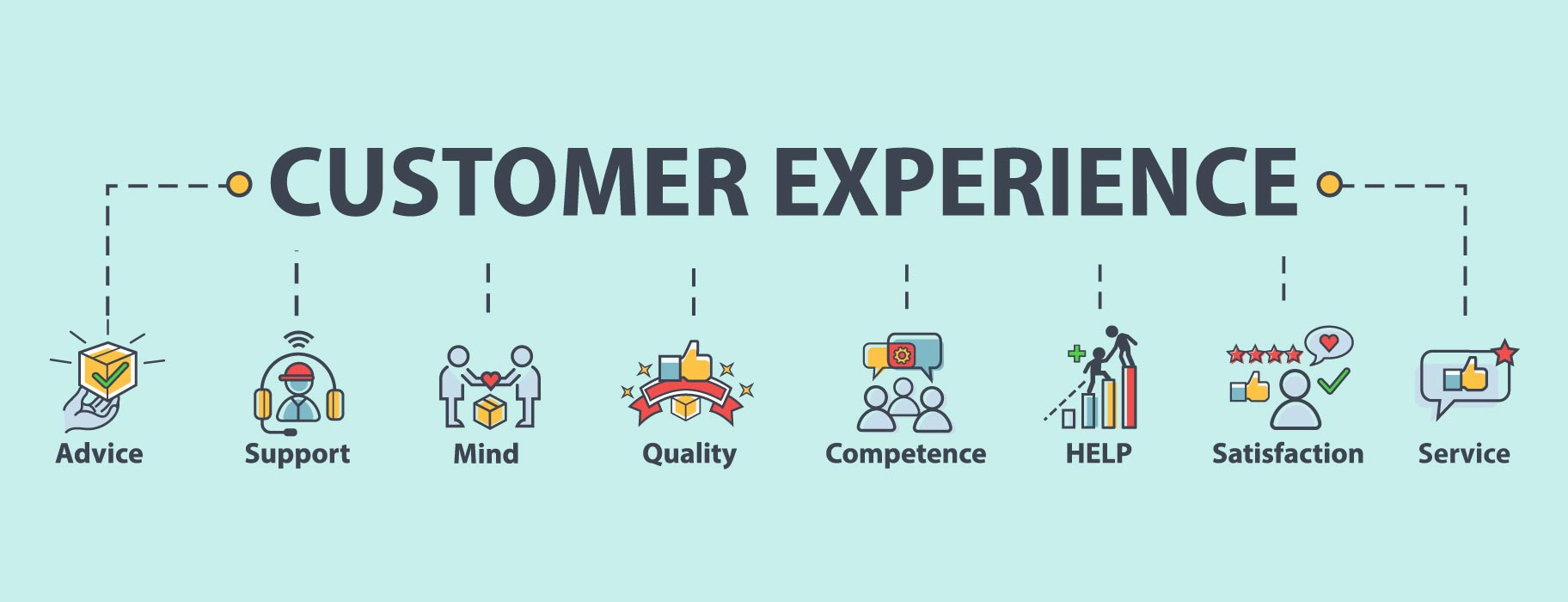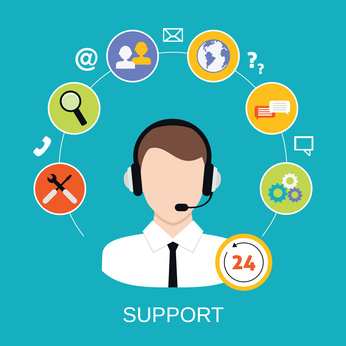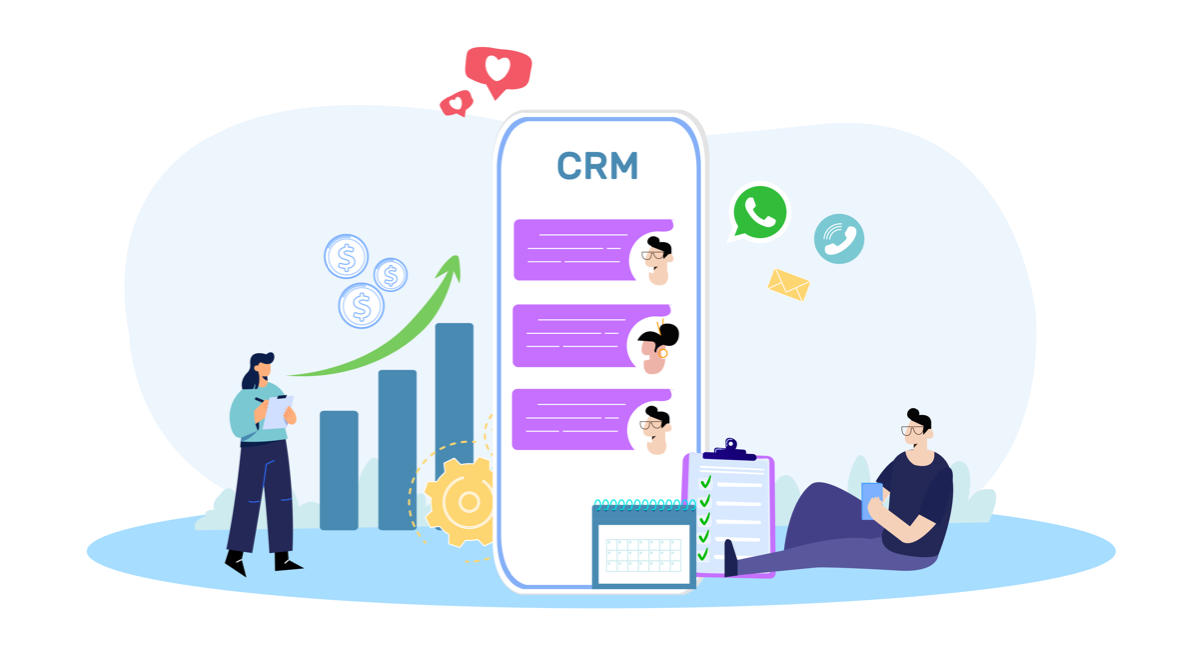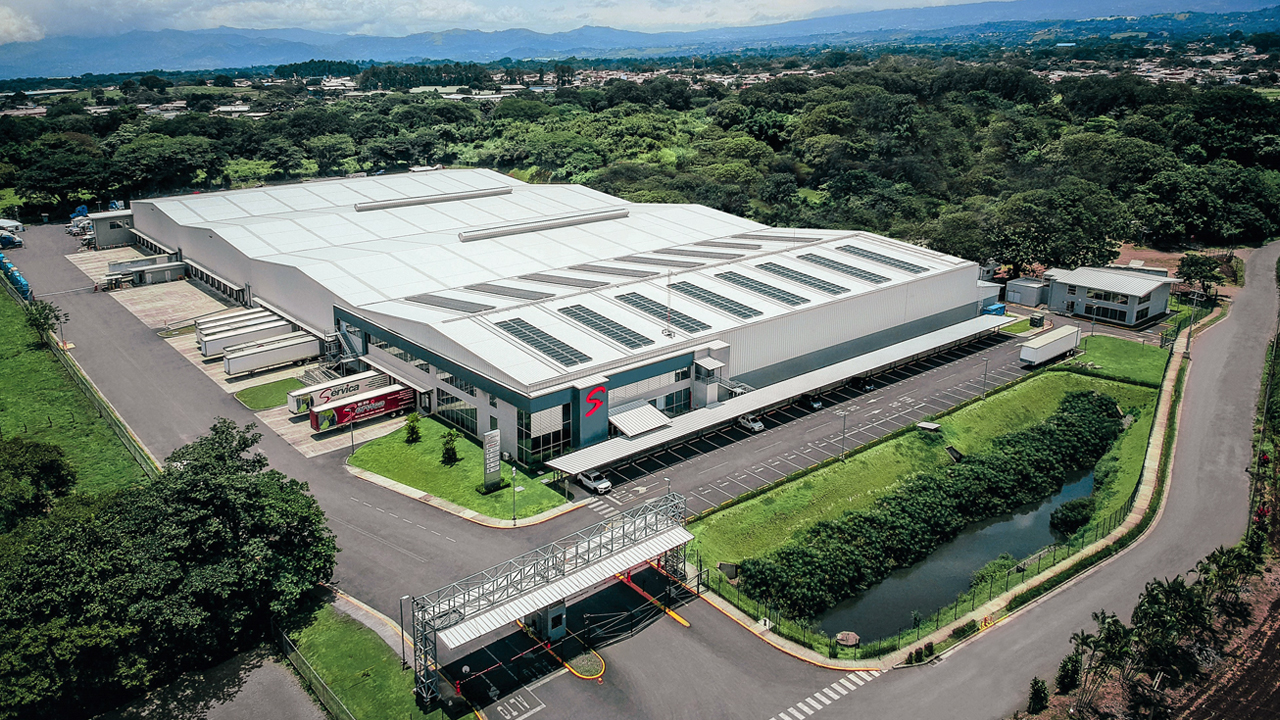
What is the future of CRM? 11 CRM trends in 2024

CRM Trends That Will Surprise You
- The CRM sector is expected to generate $80 billion in revenue by the end of 2025.
- CRM solutions are used by 91% of firms with more than ten workers to improve operational efficiency and communication.
- CRM software is used for sales reporting by around 82% of successful businesses.
- Top marketers believe CRM solutions can boost sales by 29%.
If growth is your ultimate goal, CRM software is no more a possible option! It's a necessary tool for improving your business opportunities.
In the dynamic landscape of Customer Relationship Management software in 2024, several platforms continue to redefine businesses' approaches to customer engagement and management.
✔️monday.com stands out for its intuitive interface and customizable workflows, empowering teams to collaborate seamlessly.
✔️Salesforce remains a dominant force, offering robust functionalities for sales, marketing, and customer service, bolstered by its extensive ecosystem of integrations. If you are from Germany consider this link Salesforce DE.
✔️Thryv has gained traction for its user-friendly design and comprehensive suite of tools, catering particularly to small and medium-sized businesses.
✔️Salesmate excels in its simplicity without compromising on features, streamlining sales processes effectively.
✔️Zoho continues to evolve, providing scalable solutions across various industries with its suite of applications.
Each of these CRMs represents a unique value proposition in optimizing customer interactions and driving business growth.
CRM Trends for 2024
1. Increasing Hyper-Personalization for Customers

In today's business world, personalizing communications is no longer optional—it's a necessity. And the foundation of effective personalization lies in robust data, which your CRM is in charge of. The more comprehensive and detailed your CRM data, the greater your ability to tailor the customer experience. As you delve deeper into the data, you can send customized messages, offer relevant recommendations, and present enticing deals that resonate with your customer base.
Although CRM technology may have been among the earliest sales and marketing tools available, it has evolved rapidly to meet the expectations of customers who demand more. As time progresses, we believe that companies that effectively use their CRM data will have a significant competitive advantage. The ability to leverage the power of data within your CRM is key to success.
Now is the perfect time to explore and implement innovative strategies to further enhance your CRM capabilities and elevate your business in the ever-competitive market. Don't miss out on the chance to get the most out of your CRM system this year!
2. Driving Collaboration and Customer-Centricity: Uniting Sales, Marketing, and Operations
By aligning sales, marketing, and operations, you create a synchronized effort that leads to the achievement of key performance indicators (KPIs) and both short- and long-term objectives.
Operating in harmony means that every aspect of your business works together towards a shared end goal. Each department supports one another and, most importantly, the customer. This unified approach ensures that your CRM platform becomes a powerful tool, revealing how each department contributes to the customer journey at every stage of the sales funnel.
By fostering collaboration and a customer-centric mindset, your organization can achieve new levels of success. When sales, marketing, and operations unite their efforts, they become a force, propelling your business toward its collective goals.
3. The Potential of AI for CRM Success

AI is not just a buzzword; it's the key to unlocking tremendous possibilities for your CRM. If you aim to provide a personalized experience to your customers, you have to pay attention to AI.
Automation:
Say goodbye to tedious and time-consuming tasks with AI-powered automation. Machine learning algorithms streamline project management and customer handling. AI eliminates the arduous process of customer segmentation, allowing you to understand their unique needs. With an automated CRM system, you can effectively analyze customer data, create marketing campaigns based on specific variables, and deliver enhanced personalization.
Communication Tools:
Harness the power of conversational tools like chatbots and voice assistants to boost your business. Chatbots keep communication channels open, providing real-time assistance and resolving customer queries. Natural Language Programming (NLP) features play a crucial role in managing customer service by prioritizing urgent queries, understanding customer sentiment from emails and messages, and even transcribing voice meetings. These tools empower your business to engage with customers efficiently.
Analytics:
AI's impact on CRM software goes beyond automation and communication. Predictive analytics is a game-changer, helping you mitigate potential challenges and improve business outcomes. AI can identify user behaviors and enhance sales opportunities. The insights provided by AI-driven analytics enable marketing experts to make dynamic decisions. Real-time data further allows you to understand customer preferences and trigger buying decisions.
By leveraging AI's capabilities, you can revolutionize customer experiences, streamline operations, and drive growth like never before.
4. The Soaring Popularity of Social CRM
Ever heard of social CRM? It's all about combining social media channels with CRM platforms. This integration provides companies with a more comprehensive view of what people are sharing on social media and a deeper understanding of brand perception.
By leveraging social CRM, organizations can swiftly and thoughtfully respond to comments, strengthening relationships with both current and potential customers. What's more, they can incorporate valuable user feedback into their future plans, ensuring they stay on the right track and meet customer expectations. Social CRM is revolutionizing the way businesses connect with their audience and adapt to their needs.
5. The Rise of Self-Service and Simple CRM

CRM trends in 2024 show a growing tendency toward integrating self-service portals with CRM software. In the past, business management systems were known for being intricate, costly, and dependent on IT support for setup and maintenance. However, self-service CRMs are changing this narrative. They are designed to be user-friendly, require minimal technical expertise or support, and often fall under the low-code or no-code category.
This accessibility factor makes self-service CRMs more affordable, particularly for small businesses. Additionally, many self-service CRMs operate on cloud-based platforms, simplifying the setup process and enabling easy scalability.
Simple CRMs excel in user-friendliness compared to their complex counterparts, making them ideal for small businesses and solopreneurs. These systems offer cost-effective solutions for those who lack the time or resources to invest in a complex CRM setup.
By embracing the simplicity of self-service CRMs, businesses can streamline their operations, maximize efficiency, and save valuable resources, ultimately enabling their growth in an increasingly competitive market.
6. CRM Advancements with Improved Automation
Automation has long been the foundation of business management software, and its influence on CRM trends is set to continue well into 2024 and beyond. This technology continuously enhances CRM functionalities, helping businesses stay organized. With features like email integration, social media management, and editorial calendars, automation improves overall functionality, allowing businesses to stay ahead of the game and enabling team members to be more efficient and organized.
Let's explore the top five benefits of automation:
- Better productivity: Automation optimizes applications and processes, leading to faster operations. By incorporating automated decision-making, forecasting, and real-time predictions from various sources of structured and unstructured data, organizations gain greater productivity and accuracy in their planning cycles. For instance, in the finance industry, robotic process automation (RPA) solutions are utilized to create bots that automate the production of monthly management reports.
- Reduced costs: According to Deloitte, organizations implementing intelligent automation have already achieved an average cost reduction of 27% from their implementations. Scaling intelligent automation leads to significant cost savings.
- Improved accuracy: Leveraging both structured and unstructured data while automating repetitive tasks ensures better decision-making. With less human intervention, the chances of human errors decrease, resulting in improved accuracy across CRM operations.
- Enhanced customer experience: The integration of AI technology within CRM systems enables organizations to better understand customer needs, communicate more effectively, and deliver higher-quality products to the market. For example, in the asset management industry, bots are frequently employed to provide first-line customer support and pricing quotes, leading to faster response times and better customer experience.
- Upskilled and continuous learning: Organizations must invest in enhancing and expanding their employees' skill sets to thrive in the ever-evolving technological landscape. Increased automation fosters a culture of continuous learning, encouraging companies to embrace ongoing development and upskilling.
7. User-Friendly and Mobile-Ready CRM Solutions

For quite some time, CRMs have struggled to gain the favor of sales professionals. The complexity and challenging setup of traditional CRM software have been major problems, leading to only 43% of salespeople utilizing these tools. Fortunately, the situation is turning as some CRM systems prioritize simplicity and ease of use.
The focus is now on CRM software that is straightforward to set up and user-friendly. These systems eliminate the complexity that has previously deterred sales professionals, allowing them to quickly adapt and use CRM technology.
Furthermore, the significance of mobile compatibility is moving from a “nice to have” to a “need to have”. Mobile-ready CRMs enable teams to access and update the system on the go, enabling sales professionals to stay connected and efficient even while away from their desks.
By embracing user-friendly interfaces and providing seamless mobile experiences, modern CRMs are breaking down barriers and becoming necessary tools for sales professionals. The era of complex CRM systems is giving way to solutions that prioritize simplicity, usability, and accessibility, empowering sales teams to excel and drive business growth.
8. CRM Systems for Solopreneurs and Freelancers
Today, CRM platforms are sophisticated yet accessible tools. They are suitable for a wide range of budgets and offer various features, making them increasingly popular among freelancers and solo entrepreneurs.
These CRM systems provide essential capabilities that solopreneurs and freelancers require, including contact management, deal tracking, and invoicing. Some software even goes a step further by offering customer management features, which are important for those managing multiple clients simultaneously. By leveraging CRM tools for these tasks, solopreneurs can streamline their operations and dedicate more time to business growth and expansion.
With CRM software designed specifically for their needs, solopreneurs and freelancers can optimize their workflow, enhance client relationships, and drive business growth. These platforms empower individuals to compete effectively in the market and achieve their goals.
9. CRM Expansion into New Markets

Currently, four key industries—real estate, distribution, insurance, and consulting make up 51% of businesses that use a CRM. However, this trend is gradually changing as more industries recognize the importance of CRM in managing customer data and relationships.
While these four sectors dominate CRM usage, other industries collectively represent approximately 32% of CRM buyers. Manufacturing, mortgage, and software/IT industries make up 6%, 5%, and 5% of CRM users. As businesses aim to expand into new markets, it becomes increasingly vital to adopt a CRM solution that can meet their needs and scale.
10. The Greater Impact of IoT Integration on CRM Systems
In the realm of CRM trends, the influence of IoT continues into 2024 as well. The Internet of Things (IoT) is a vast network that interconnects billions of Internet-enabled devices. These devices collect and transmit data, enabling users to monitor and manage various aspects of their daily lives.
An increasing number of IoT devices are now capable of integrating with business management software, enabling businesses to integrate IoT data with their CRM data. This integration revolutionizes the management of customer touchpoints across multiple channels. Prominent CRM vendors are actively working on developing IoT-CRM integration solutions. The forecast for CRM trends in 2024 highlights significant growth in the IoT market, prompting vendors to prioritize the integration of this technology into CRM features.
According to Fortune Business Insights, the IoT market was valued at $384.70 billion in 2021, and it is projected to grow to $2,465.26 billion by 2029, demonstrating a compound annual growth rate (CAGR) of 26.4% during the forecast period.
The integration of IoT data delivers substantial value to both customers and businesses. The insights derived from connected devices provide a profound understanding of customer behavior and preferences, leading to enhanced customer experiences and predictive capabilities. This, in turn, amplifies operational efficiency, enabling businesses to meet customer needs more effectively.
11. Transforming User Experience: The Rise of Voice and Conversational UI

The way we interact with technology is constantly evolving, and companies are continuously exploring innovative methods to enhance user-friendliness. In recent years, voice-activated assistants like Siri and Alexa have experienced a remarkable surge in popularity.
Now, according to the latest CRM trends for 2024, business management software is embracing voice and conversational user interfaces (UI). These advanced CRM features enable users to interact with the software using natural language, revolutionizing the user experience and surpassing the capabilities of traditional CRMs. Voice and conversational UI not only enhance efficiency but also create a more engaging platform compared to text-based interfaces. They enable users to establish a personalized connection with the system, fostering stronger relationships with customers.
To Sum Up
Now that you're up to date on the latest CRM trends, you can modify your business plan to give the best customer experience possible. It's a good opportunity to assess your CRM system and determine whether this technology is still meeting your business needs.
So follow our blog to know all the new trends!














